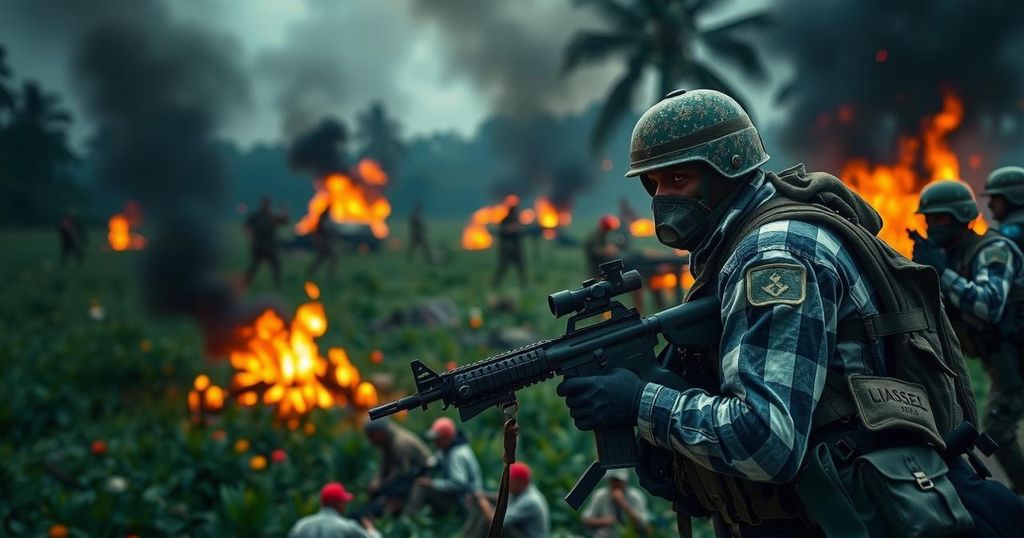Fighting has intensified in eastern DRC between Rwandan-backed M23 rebels and the Congolese army despite a ceasefire, with notable clashes in Lubero territory. Since 2021, the M23 has captured significant territory, escalating the humanitarian crisis. Although Angola has mediated a truce, the M23 has rejected this agreement’s relevance, leading to renewed hostilities in strategic areas, with thousands displaced. Diplomatic discussions are scheduled for December 15 in Luanda.
Fighting has escalated in the eastern Democratic Republic of Congo (DRC) over the past four days amid ongoing hostilities between the Rwandan-backed M23 rebels and the Congolese army, despite a previously established ceasefire. This renewed violence comes after a truce mediated by Angola in early August, which had managed to calm front-line tensions temporarily. The M23 militia, which claims to represent the interests of ethnic Tutsis, has increasingly gained territory since 2021, resulting in significant displacement of civilians and a worsening humanitarian crisis. Currently, the M23 has positioned itself around the provincial capital of Goma, further intensifying regional conflicts.
In October, the M23 commenced localized offensives, undermining the goals of the truce even as both sides engaged in exchanges of fire. The military activities have particularly magnified in Lubero territory, with both factions asserting control over villages and positions, although clear advancements remain indeterminate. While diplomatic dialogues persist between the DRC and Rwanda through Angola’s facilitation, the M23’s spokesperson dismissed any relevance to the ongoing agreements, emphasizing their independence from the accord. Military confrontations have become more pronounced near the strategic Butembo route, indicating a possible escalation as both groups bolster their reinforcements amidst the turmoil.
The humanitarian implications of these clashes are severe, as thousands of individuals displaced by the conflict have begun migrating towards safer areas like Kitsambiro. The situation continues to evolve, with the Congolese armed forces reporting ongoing clashes, despite an unclear perspective of the current battlefield dynamics. Leaders from both nations are scheduled to meet for discussions in Luanda on December 15. Such dialogues may be critical in addressing the profound instability caused by the M23’s resurgence and the overarching conflict in the region.
The eastern regions of the Democratic Republic of Congo have been plagued by violence and instability for several years, primarily due to the activities of various armed groups, including the M23 militia. Formed in 2012, the M23 has repeatedly engaged in conflict with the Congolese government, often with alleged support from Rwanda. The conflict is rooted in historical ethnic tensions, particularly involving the Tutsi population. A ceasefire agreement mediated by Angola had provided a temporary reprieve in violence; however, recent developments indicate a severe escalation, threatening the fragile peace that had been established.
The ongoing clashes in eastern Democratic Republic of Congo underscore the fragility of peace in the region despite previous diplomatic efforts. The resurgence of the M23 militia threatens to destabilize the area further, exacerbating the humanitarian crisis. The international community, alongside key regional players, may need to reassess strategies to promote lasting peace and address the root causes of the conflict, particularly ahead of the upcoming talks between Congolese and Rwandan leaders.
Original Source: www.barrons.com






